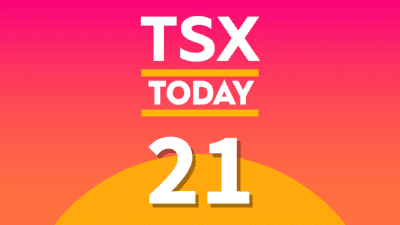The comeback of Canada’s most dominant airline was highly anticipated when the federal government eased travel restrictions and extended financial support in 2021. However, the presumed high-growth stock still lost 7.2% in 2021. As of this writing, Air Canada (TSX:AC) is up 20.2% year-to-date on the TSX.
Air Canada had a record of seven consecutive quarterly profits before the global pandemic. Unfortunately, everything went haywire because of COVID-19. Since Q1 2020, it has been a string of losses. In Q4 2021, the company reported a loss of $493 million, thereby extending the losing streak to eight quarters.
No take-off in 2022
While there’s a sign of business revival based on the full-year 2021 results, the road ahead remains extremely challenging. Industry experts can’t make definitive forecasts due to the ongoing Omicron variant. Their baseline recovery estimate for the global airline revenue in 2022 is US$432 billion. The figure is only 65% of the total revenue in 2019.
Meanwhile, based on market analysts’ forecasts, the airline stock won’t take off yet in 2022. Their 12-month average price forecast is $29.25, a return potential of 38.4%. The upside is way below the 86.9% total return in 2019 when Air Canada made it to the inaugural TSX30 List (ranked seventh).
Exit from federal support
On November 19, 2021, Air Canada announced its withdrawal from the federal government’s financial support. Management cited improved liquidity position and ongoing recovery from the pandemic as the primary reasons. The $9.08 billion airline company only used $1.4 billion of the $5.375 billion total support package. It all went to payment of refunds to customers with non-refundable tickets.
According to Michael Rousseau, Air Canada’s president and CEO, the withdrawal was a convincing sign of progress. He said the assistance offered to Air Canada importantly served as an extra level of insurance and enabled the company to raise additional liquidity on its own to manage the pandemic.
Rousseau further adds that it gave the distressed airline sufficient resources to effectively compete in the post-pandemic marketplace. In Q3 2021, Air Canada generated almost $7.1 billion in gross proceeds from a series of financing transactions. Besides having substantial liquidity, management was able to extend Air Canada’s debt maturities until near the end of the decade.
Vastly improving financials
In Q4 2021, Air Canada’s revenue grew 230.2% to $2.73 billion versus Q4 2020. Notably, net loss was 57.5% lower year-over-year. The bright spot was the positive EBITDA ($22 million), the first in seven quarters.
Also, the $10.4 billion unrestricted liquidity on year-end 2021 was 29% higher than at the start of the same year. For Q1 2022, Air Canada plans to increase its ASM (available seat miles) capacity by 243% from Q1 2021.
Expect the cargo business to be a growth driver moving forward. Total cargo revenues in 2021 reached $1.495 billion, a resounding 62.5% increase versus 2020. Air Canada announced in October 2021 a $16-million project to expand and enhance its cargo division’s cold chain handling capabilities.
Good news
The good news to investors is the declining net loss and cash burn. If you plan to invest today, be patient. Air Canada will eventually turn the corner but not in 2022.










